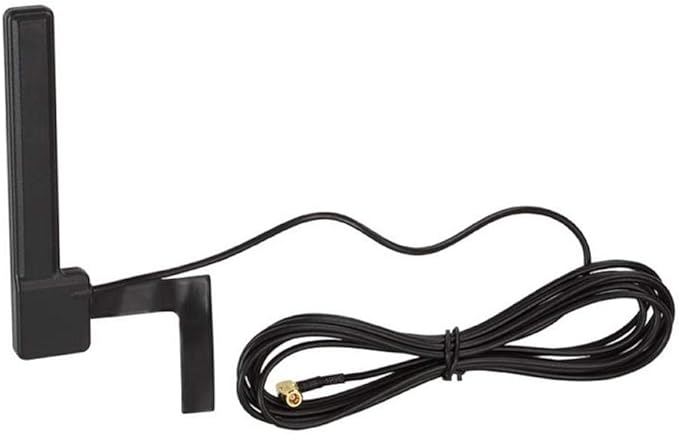DAB 12V: Veien til Krystallklar Digital Radio i Din Bil
I en tid hvor lydkvalitet og tilgang til et bredt spekter av radiokanaler blir stadig viktigere, fremstår DAB 12V som en ideell løsning for bileiere som ønsker å oppgradere lydopplevelsen i sitt kjøretøy. Denne omfattende guiden vil dykke dypt ned i alle aspekter ved DAB 12V, fra de grunnleggende prinsippene bak digital radio til detaljerte instruksjoner for installasjon og en oversikt over de beste produktene som er tilgjengelige på markedet. Vi vil også utforske fordelene med DAB 12V sammenlignet med tradisjonell FM-radio, og gi deg all den informasjonen du trenger for å ta en informert beslutning og nyte overlegen lydkvalitet på veien.
Hva er DAB og Hvorfor er 12V Relevant for Din Bil?
DAB, som står for Digital Audio Broadcasting, er en digital radioteknologi som tilbyr en rekke fordeler i forhold til den analoge FM-radioen. Blant de viktigste fordelene er bedre lydkvalitet, et større utvalg av radiokanaler og tilleggstjenester som tekstinformasjon og bilder. I Norge har DAB gradvis erstattet FM-nettet, og for mange bileiere er derfor DAB 12V en nødvendighet for å kunne fortsette å lytte til radio i bilen.
Betegnelsen 12V refererer til spenningssystemet som er standard i de fleste personbiler. En DAB 12V enhet er spesifikt designet for å fungere med dette spenningssystemet, noe som gjør installasjonen relativt enkel og problemfri i de fleste kjøretøy. Det finnes ulike typer DAB 12V løsninger, fra enkle adaptere som kobles til eksisterende bilstereoanlegg, til fullverdige DAB bilradioer som erstatter den gamle FM-radioen.
Fordelene med Digital Radio (DAB)
Overgangen fra analog FM-radio til digital DAB har medført en rekke betydelige forbedringer for radiolyttere:
Overlegen Lydkvalitet
En av de mest merkbare fordelene med DAB er den betydelig bedre lydkvaliteten sammenlignet med FM. Digital overføring eliminerer mye av støyen og forstyrrelsene som ofte plager FM-sendinger, noe som resulterer i en klarere og mer behagelig lytteopplevelse, spesielt viktig når du er på farten.
Større Kanalutvalg
DAB muliggjør overføring av et langt større antall radiokanaler innenfor samme frekvensspektrum som FM. Dette betyr at lyttere får tilgang til et bredere og mer variert utvalg av programmer, inkludert nisjekanaler som spesialiserer seg på ulike musikksjangre, nyheter, sport eller kultur.
Tilleggstjenester og Informasjon
I tillegg til lydoverføring kan DAB også levere ulike former for tilleggsinformasjon. Dette kan inkludere tekstmeldinger om sangtitler og artister, værmeldinger, trafikkinformasjon og til og med bilder eller grafikk på kompatible enheter. Denne funksjonaliteten beriker lytteopplevelsen og gir merverdi for brukeren.
Fremtidssikker Teknologi
Med nedstengningen av FM-nettet i Norge er DAB fremtidens radiostandard. Ved å investere i en DAB 12V løsning sikrer du at du kan fortsette å lytte til radio i bilen din i mange år fremover, uten å bekymre deg for at teknologien skal bli utdatert.
Ulike Typer DAB 12V Løsninger for Din Bil
Det finnes flere forskjellige måter å integrere DAB i ditt eksisterende 12V bilmiljø. Valget av løsning avhenger av dine preferanser, budsjett og bilens eksisterende lydsystem.
DAB Adaptere
En DAB adapter er en populær og ofte kostnadseffektiv løsning for å legge til DAB funksjonalitet til en eksisterende bilradio. Disse adapterne mottar digitale radiosignaler og overfører lyden til bilens lydsystem via en AUX-inngang, Bluetooth eller ved å simulere en FM-sending. DAB adaptere er generelt enkle å installere og krever sjelden profesjonell hjelp.
Fordeler med DAB Adaptere:
- Relativt lav pris
- Enkel installasjon
- Portabilitet (kan flyttes mellom biler)

Ulemper med DAB Adaptere:
- Kan kreve ekstra kabler og tilkoblinger
- Integrasjonen med bilens eksisterende system er ikke alltid sømløs
- Lydkvaliteten kan være begrenset av overføringsmetoden (spesielt ved FM-simulering)
Integrerte DAB Bilradioer
For en mer sømløs og integrert DAB opplevelse, kan du velge å erstatte din eksisterende bilradio med en som har innebygd DAB mottaker. Disse DAB bilradioene tilbyr ofte også andre moderne funksjoner som Bluetooth-tilkobling, USB-porter og støtte for Apple CarPlay og Android Auto.
Fordeler med Integrerte DAB Bilradioer:
- Optimal lydkvalitet
- Sømløs integrasjon med bilens dashbord
- Ofte flere moderne funksjoner inkludert
Ulemper med Integrerte DAB Bilradioer:
- Høyere pris enn adaptere
- Installasjonen kan være mer kompleks og kreve profesjonell hjelp


DAB Moduler for Eksisterende Systemer
Noen bilprodusenter tilbyr DAB moduler som kan integreres med bilens eksisterende infotainmentsystem. Disse modulene gir DAB funksjonalitet uten at du trenger å bytte ut hele radioen. Kompatibiliteten avhenger av bilmodellen og det eksisterende systemet.
Fordeler med DAB Moduler:
- Sømløs integrasjon med bilens originale system
- Beholder bilens originale utseende og funksjonalitet
Ulemper med DAB Moduler:
- Kan være kostbart
- Tilgjengeligheten er begrenset til visse bilmodeller
- Installasjonen krever ofte profesjonell hjelp
Viktige Faktorer å Vurdere Ved Valg av DAB 12V Løsning
Når du skal velge den rette DAB 12V løsningen for din bil, er det flere viktige faktorer du bør ta hensyn til for å sikre at du får en enhet som passer dine behov og preferanser.
Lydkvalitet
Lydkvaliteten er en av de primære fordelene med DAB. Sørg for at den valgte løsningen kan levere den klare og støvfrie lyden som DAB er kjent for. Integrerte DAB bilradioer gir generelt den beste lydkvaliteten, mens DAB adaptere som bruker AUX- eller Bluetooth-tilkobling også kan levere god lyd. Unngå adaptere som kun bruker FM-simulering hvis du prioriterer lydkvalitet.
Brukervennlighet og Betjening
En god DAB 12V enhet skal være enkel å bruke og betjene mens du kjører. Vurder grensesnittet, størrelsen og plasseringen av knapper og skjerm. En klar og tydelig skjerm som viser informasjon om kanal og sang er også en fordel.
Installasjon
Vurder hvor komfortabel du er med å installere enheten selv. DAB adaptere er vanligvis enklere å installere enn integrerte DAB bilradioer, som ofte krever spesialisert kunnskap og verktøy. Hvis du er usikker, kan det være lurt å vurdere profesjonell installasjon.
Funksjoner og Tilkoblingsmuligheter
Tenk på hvilke andre funksjoner du ønsker i tillegg til DAB. Mange DAB bilradioer og noen adaptere tilbyr Bluetooth-tilkobling for handsfree telefonsamtaler og musikkstrømming, USB-porter for lading og avspilling, og støtte for Apple CarPlay og Android Auto. Vurder hvilke av disse funksjonene som er viktige for deg.
Pris og Budsjett
DAB 12V løsninger er tilgjengelige i et bredt spekter av priser. Sett deg et budsjett før du begynner å se etter produkter, og sammenlign priser og funksjoner for å finne den beste løsningen for pengene.
Antenne
En god antenne er avgjørende for å få et sterkt og stabilt DAB signal. Noen DAB adaptere leveres med en enkel vindusantenne, mens integrerte DAB bilradioer ofte krever en ekstern antenne. Vurder hvilken type antenne som passer best for din bil og dine behov.
Steg-for-Steg Guide til Installering av DAB 12V Adapter
Selv om installasjonsprosessen kan variere noe avhengig av den spesifikke DAB adapteren du har valgt, er det noen generelle trinn som gjelder for de fleste enheter.
Trinn 1: Plassering av Adapteren
Velg en egnet plassering for DAB adapteren i bilen din. Den bør være lett tilgjengelig for betjening og ikke hindre sikten eller andre viktige funksjoner. Mange velger å montere adapteren på dashbordet eller i nærheten av midtkonsollen.
Trinn 2: Koble til Strøm
DAB adaptere får vanligvis strøm via en 12V sigarettennerplugg. Koble strømkabelen fra adapteren til sigarettenneruttaket i bilen din.
Trinn 3: Koble til Lydsystemet

Det er flere måter å koble DAB adapteren til bilens lydsystem:
AUX-inngang:
Hvis bilen din har en AUX-inngang (en 3,5 mm lydkontakt), kan du bruke en AUX-kabel for å koble adapterens lydutgang til bilens AUX-inngang. Velg deretter AUX som lydkilde på bilradioen din.
Bluetooth:
Noen DAB adaptere kan kobles til bilradioen via Bluetooth. Aktiver Bluetooth på både adapteren og bilradioen, og følg instruksjonene for å pare enhetene.
FM-sender:
Enkelte adaptere har en innebygd FM-sender som overfører lyden til en ledig FM-frekvens på bilradioen din. Still inn bilradioen på den angitte frekvensen.
Trinn 4: Montere Antennen
De fleste DAB adaptere leveres med en selvklebende vindusantenne. Plasser antennen på et rent område av frontruten eller en sidevindu i henhold til produsentens instruksjoner. Sørg for at antennekabelen ikke er i veien for sikkerhetsutstyr eller førerens sikt.

Trinn 5: Slå på og Konfigurer
Slå på DAB adapteren og følg instruksjonene på skjermen for å skanne etter tilgjengelige DAB kanaler. Lagre dine favorittkanaler for enkel tilgang.
Installasjon av Integrert DAB Bilradio: En Mer Kompleks Prosess
Installasjon av en integrert DAB bilradio er generelt mer komplisert enn installasjon av en adapter og krever ofte fjerning av den eksisterende bilradioen og tilkobling av nye kabler. Det anbefales ofte å overlate denne jobben til en profesjonell bilstereomontør for å sikre korrekt installasjon og unngå skader på bilens elektriske system.
Generelle Trinn for Profesjonell Installasjon:

- Fjerning av den gamle bilradioen og eventuelle tilhørende paneler.
- Tilkobling av strøm, jord, høyttalerkabler og antennekabler til den nye DAB bilradioen.
- Kobling til eventuelle tilleggsfunksjoner som rattkontroller eller ryggekamera (hvis støttet).
- Montering av den nye DAB bilradioen i dashbordet.
- Testing av alle funksjoner for å sikre korrekt drift.
De Beste DAB 12V Produktene på Markedet i Dag
Markedet for DAB 12V løsninger er stort og variert. Her er en oversikt over noen av de mest populære og anerkjente produktene i forskjellige kategorier:
Populære DAB Adaptere:
- Pure Highway 600: En av de mest populære adapterne, kjent for god lydkvalitet og brukervennlighet. Har også Bluetooth og AUX-tilkobling.
- Alpine EZi-DAB-BT: En annen høyt ansett adapter med god ytelse og Bluetooth-funksjonalitet.
- Kenwood KCA-DAB100: En kompakt og brukervennlig adapter som er enkel å installere.
- Philips Original Radio Adapter: En pålitelig adapter med et intuitivt grensesnitt.
Anbefalte Integrerte DAB Bilradioer:
- Alpine UTE-202DAB: En populær 1-DIN radio med innebygd DAB+, Bluetooth og USB.
- Pioneer SPH-10BT: En «smart receiver» som fungerer sammen med smarttelefonen din og har innebygd DAB+.
- Kenwood DMX120DAB: En multimediaspiller med berøringsskjerm, DAB+ og støtte for Apple CarPlay og Android Auto.
- Sony XAV-AX3250DAB: En brukervennlig multimediaspiller med DAB+, Bluetooth og berøringsskjerm.
Viktige Tilbehør for Din DAB 12V Opplevelse
I tillegg til selve DAB 12V enheten, kan det være nyttig å vurdere følgende tilbehør for å optimalisere din digitale radioopplevelse i bilen:
Eksterne DAB Antenner:
For bedre mottak kan det være lurt å investere i en ekstern DAB antenne som monteres på taket eller en annen egnet plassering på bilen. Disse antennene gir ofte et sterkere og mer stabilt signal enn de medfølgende vindusantennene.
Antenneadaptere:
Hvis du bytter ut din eksisterende bilradio med en DAB bilradio, kan du trenge en antenneadapter for å koble den nye radioen til bilens originale antennekabel.





